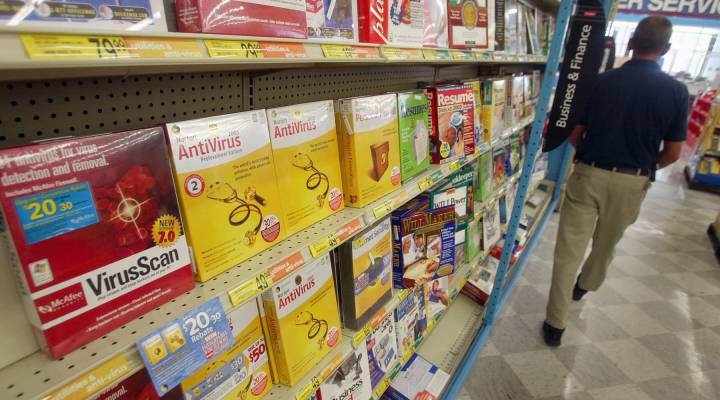
Goodbye Norton anti-virus software

According to Symantec, maker of Norton anti-virus software, anti-virus software is “dead.” At least, that’s what an executive at the company told the Wall Street Journal.
“We at Symantec and Norton have known that the era of AV-only protection has been over for quite some time,” says Fran Rosch, Senior Vice President of security products and services at Symantec. (AV, by the way, is short for “anti-virus,” not, as I initially assumed, short for “Audio/Visual”… a typical COE mistake (“Child of the Eighties”).
Rosch says AV is no longer enough to stop cyber-criminals. Now, you’ve got a whole new acronym: “ATP, as we like to call it,” says Rosch. “Advanced Threat Protection. We can see a file that’s starting to do something really weird, like reaching into an address book. We can then say, “Huh, suspicious, block it right there.”
If the old virus protection software was akin to building a wall around your computer, the new software goes a step further.
“You want to make sure that the data on your computer isn’t the soft, gooey center any longer,” says Barrett Lyon, founder of Defense.net. Take the Target data breach, says Lyon. “If that information was stored in a way that was encrypted and secured better, even though the bad guys got in, they wouldn’t be able to get to the actual information.”
The data security industry is expected to balloon to $80 billion in the next few years.
“It’s certainly the busiest time of my career and I’ve been doing this for close to 20 years,” says Chester Wisniewski, a senior security advisor at Sophos. “Many of these criminals are making millions of dollars a month and with that kind of resource on the line, they’re not going to roll over and lie down, right?”
Which means the online security business, in one form or another, won’t be dead anytime soon.
*CORRECTION: A photo caption in an earlier version of this story incorrectly identified senior vice president of Symantec Information Security Brian Dye. The text has been corrected.
There’s a lot happening in the world. Through it all, Marketplace is here for you.
You rely on Marketplace to break down the world’s events and tell you how it affects you in a fact-based, approachable way. We rely on your financial support to keep making that possible.
Your donation today powers the independent journalism that you rely on. For just $5/month, you can help sustain Marketplace so we can keep reporting on the things that matter to you.


















